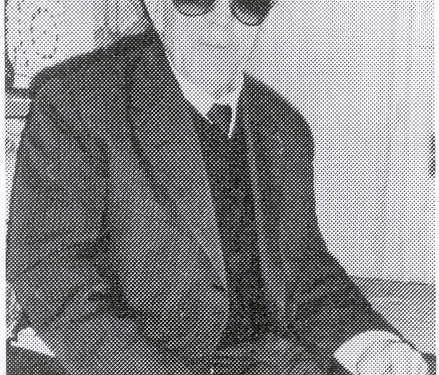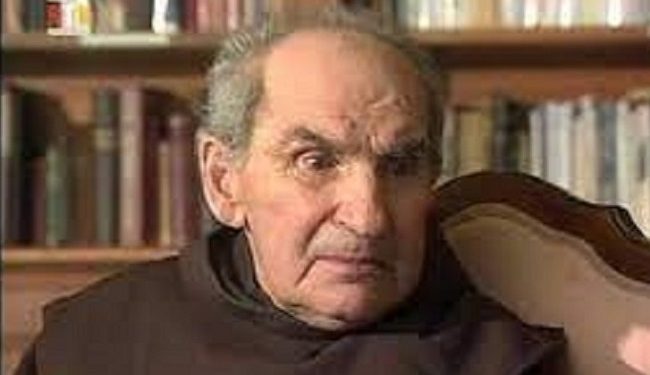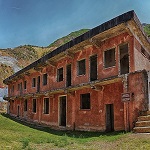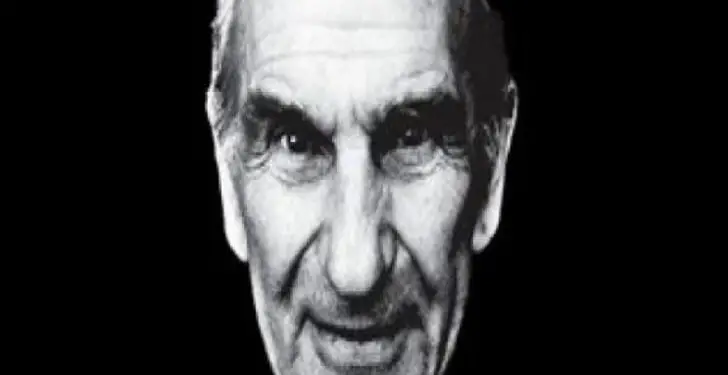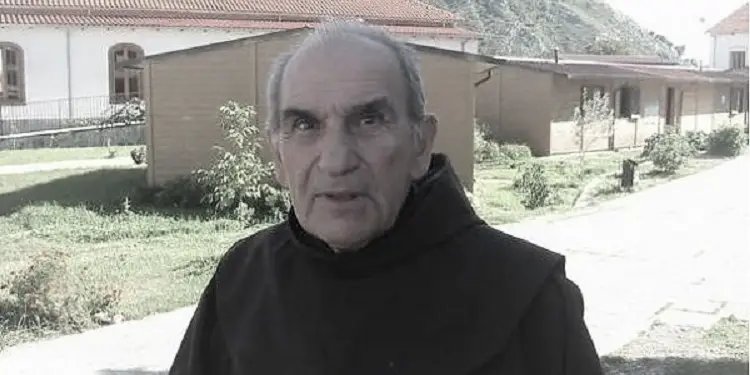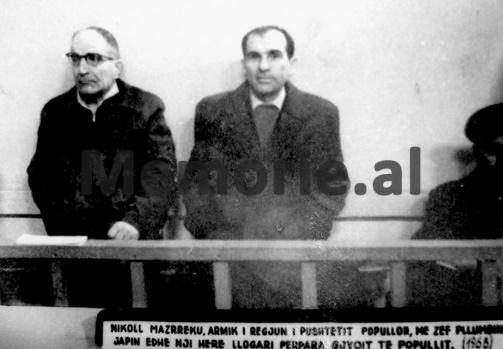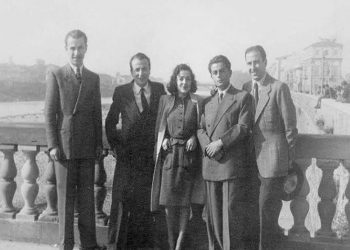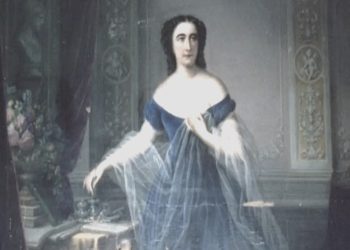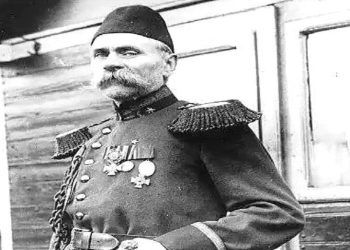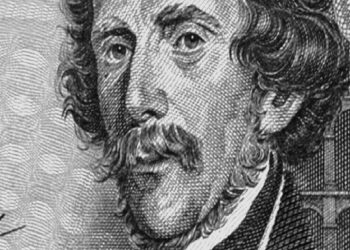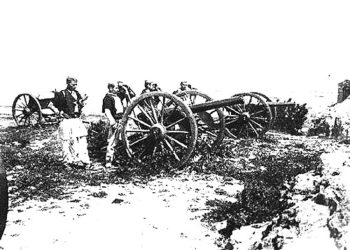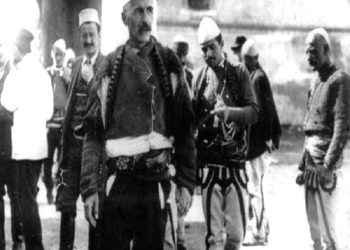By Father Zef Pllumi
Second part
-Different portraits of prisoners-
Memorie.al / Dear reader, from the beginning of this chapter I must declare that what I am writing cannot be reality itself, but only my personal impressions or even those of a group that thought like me. I have no intention of insulting anyone, let alone accusing him. In this chapter, I only present the part of a Cicero, which is associated with a gallery of figurative arts, certainly not in those of Emperors and Kings, Dukes and Popes found in Versailles, the British Museum, Tetriakovski, the Escurial or the Vatican, but in a dark gallery of prisons, where tyranny, for its own appointed purposes, unites all kinds of people. Indeed, there could be countless, but I have chosen in the description, those that are closest to my personal tastes.
Continues from last issue
Bajram Hoxha
He originated from the villages of Rajce. He was a short man, always dry and had no strength for heavy physical work, while for a hangar, he was impassable. Several times they sent him to the hospital in Tirana, for tests, because he was suspected of having “bands”, but they couldn’t find them. The first time they had condemned him, for who knows what he had said, because the bread that the agricultural cooperative gave him, of course, was not enough.
You have always been hungry, you were angry at the socialist system, you considered it; the spreader of hunger. During the 5 years of the first prison, he had learned a lot from the people of culture, who stayed here and there with him, because he was a very honest and correct person, but he also had a subtle sense of humor.
Those who were abroad, in west, were constantly asked questions about the free life in the capitalist system, because he thought that there, even the mountains were made of butter, where everyone took as much as they had, and there was no shortage of people. If they knew that in their village, there was no master of agricultural works and the land was left in half, then he used to hire workers like women, flannel, socks, etc., and he worked as well as women. During the prison, this work was very valuable to him, because he did not leave socks or old flannel without collecting them, shooting them, spinning them and then shaking them again, and making new ones, in exchange for any kilo of sugar, flour, or pasta.
After he was released from the first prison, he saw that he could no longer live free, under the command of the brigadier, the chairman of the cooperative and the secretary of the Party organization, so he decided to return me to prison. He folded the clothes he had a mattress, a quilt and a blanket, put them in a den, tied them up, loaded them on his back and started up the mountain of Qafë Thana. As the native that he was, he knew well where the state border was, but where the descent begins, a passing car stopped and asked him: “Friend, can you tell me where the border is?” “Hip, I’ll send you as far as Saint Nam”.
The driver sent him to the Pogradec police, from where the investigative and judicial processes began, from which he would be sentenced to 25 years. They said jokingly, that now he had provided bread, without paying a single ALL, while in the cooperative, no one gave it to him. While the rest of us said: “Bajram, as far as we know, that car you stopped to ask me where the border is, was Dega’s Jeep”!
During his life in prison, he was very calm, cordial with the prisoners, but not with the workers of the Command, because, as it was said, they were part of the socialist system, which he did not respect at all. We often ask him as if in mockery: “Bajram, you who speak so well of the capitalist camp, have you ever been abroad, and where, in which country”?!
“In Hamburg,” he answered with a laugh, “I spent half my life there”! By this he meant the Albanian word: “eat burg”.
In the courtyard of the camp, he always had a designated place, where on a bed there was always a large aluminum pan, filled with bread waste, which he collected with great courtesy among the canteen tables. When it wasn’t time to work, read, or appeal, he would stand cross-legged by that pan, working on a sweater or a sock. He had chosen this place quite close to the stand, where the newspapers were placed, and no one disturbed him, because he was forbidden by everyone.
One day, as soon as I read the “Scientific curiosities” column in the newspaper “Bashkimi”, I turn to him and say:
– Bajram, today news appeared in the newspaper, which shows that for the first time in the world, they have found a man with two stomachs.
– With two stomachs?!
– Yes, doesn’t it seem strange to you?
– Where? Where is this man from?
– I don’t know, it is not written where.
– It took me days, please go and read it again.
I returned, but the newspaper did not show more. Then I said to him:
– Bajram, what do you care about where this man is, the fact that he has two stomachs, wherever he is, is enough.
– I feel great pain for him. If he is in the socialist camp, he can postpone for a year, but in the socialist camp, not a day. I have one stomach and I’m barely living, not him with two…!
Kin Dushi
He was orphaned at the age of 10, and was brought up in a state dormitory near the “Normal” in Elbasan. During the war, he participated in the partisan brigades, having just received his high school diploma. The brigade commander was Gjin Marku. It was also written among the communists, because they had infiltrated all the state dormitories, during the time of the Monarchy and the Italian occupation.
In the Ballshi camp, he wanted us to work together in a brigade and a team. He had no one to come from the family, for which he was very preoccupied, because he had two small children, that he never left his mouth. He smoked, but only when someone gave it to him. With the stoicism that characterized him, he bore the greatest poverty and the sufferings of prisons and labor camps, always laughing and with Shkodran humor.
There was a great culture, formed in the “Normal” school of Elbasan, and in higher studies in the Soviet Union, for literature. He also had a determined character and human honesty. He was one of the first writers of the communist era, which in our literature was called “socialist realism”. He had published the books: “In the mouth of the wolf” and “Udha e Velani”, with which he received the first prize of the Republic in literature. As he told me, the disaster had happened with the third novel, “In the sky shines only a star” (I am not sure about this title), which was stopped and not put into circulation, because it was criticized for its revisionist features.
The content, as Kini told me, was this: During the partisan or National-Liberation war, among several episodes, an action was described where two currents were highlighted, the strategic-military one of the commander and the humanitarian one of the commissar. When this novel was published, it was banned, because Fiqrete Shehu, at that time the secretary of the Tirana Party Committee, commented that it described the war of the First Brigade, where the commander was Mehmet Shehu, and the commissar Tuk Jakova, this was condemned the last from the Party.
At that time, Kini was the editor-in-chief of the magazine “Ylli”.
– Ramiz Alia is calling me, – Kini told me. – When I showed up, he told me that his friend Enver wanted to meet me at 12 o’clock. We went together and found him lying on a deck chair, with a book in his hand. After we greeted each other, he stretched out again and got straight to the point. “Friend Kin, I have carefully read your last book.
It is very beautiful as literature, but it falls into revisionism. During the war, the commander and commissar were in one mind and not in two, as you say. Party-People unity was steel at that time, as it is today. I advise you to take it in your hands once more, to process it as it should, without a single drop of revisionist bile”.
“Comrade Enver, the people would have always remained oppressed if it were not for the teachings and leadership of the Party. I understand communism as the peak of human humanity and I present this idea in the novel”. That’s all I had to tell you”, – Enveri ended the conversation.
We hung out outside and Ramiz invited me for lunch at his house, which was nearby. We found his wife preparing the table. We talked together for a long time about some problems, but in the end the conversation ended with the advice that my friend Enver had given me.
After eating, Ramiz duels to get me an ordinary medicine, meanwhile, his wife, who was a true, cultured and kind lady, the daughter of Aleksandr Xhuvan, tells me in confidence: “Kin, listen to my husband what to say, that I am very intelligent, not that my husband is, I am saying this, but when I compare him with others, this one is very high”.
– It never occurred to me to rework the novel according to the schemes, – Kini tells me. – I had written it with the greatest piety, for the idea I had about communism. The problem was raised by Fiqrete Sanxhaktari, the wife of Mehmet Shehu, who, confidentially in close circles, was also called; “Fiqrete Sangjaktari”. She also raised this issue in the basic organization of the Party, where everyone defended me. Later, as the secretary of the Party Committee for Tirana, she criticized my novel in meetings of all organizations in the capital.
She won with a majority of votes and I was sentenced, I was expelled from the Party as a revisionist. It didn’t take long and one day at the beginning of summer, while I was working in the editorial office of “Ylli” magazine, I was informed that an officer was looking for me down there, at the door. I went down quickly to avoid being ambushed. When I met him, I asked him: “Friend, what are you looking for?” He answered me: “In the name of the people, you are under arrest”! “Dude, please, let me go upstairs to get the jacket I have in the office.” “Do not move”.
– From the heat of the beginning of the summer, – Kini told me, – my jacket had been washed and left on the chair’s back. It remains there and I don’t know her fate, because I never saw her again. They put me in that “Jeep” of Dega and this story of all of us began.
– Kin, today, after so many years in prison, – I told him, – what does communism look like?
– Father, I respect you very much for being a representative of Western culture. The Catholic Church created it, it created masterpieces of art in architecture, painting, sculpture and music, even in literature. However, it did very little for the development or equalization of human society, which remained divided among the old classes – it remained therefore divided into patricians, plebeians and slaves. Now it is divided into aristocrats, bourgeois, workers and peasants. I think that only communism will flatten these classes and create the new world culture. This is my belief.
– Kin, this belief of yours seems very loyal to me. During these 50-60 years, reality has shown that communism is just a shameless demagoguery of sharks, or human tyrannosaurs, as we call them. According to my opinion, communism is an old utopia of people that develops more among people that it finds stupid, while it was developed among intellectuals, it turns them into stupid.
– Thank you for the compliment, – Kini replied. – We have been taught the criticisms of archaic and patriarchal people and this is our real revolution and not the one with weapons, we have applied them until now with state forms.
These conversations with Kini were permanent. Although in the same conditions, both of us were hungry, both of us were hungry, because the rubber boots gave us very small amounts, both of us wore rags, and we spent half of our free time cooking. However, we were such cordial friends, as if we were brothers. We often discussed the fate of Albanian literature, in which he was active.
– I am very sorry, – he told me, – that the greatest talents of today practice professional servility, only for titles and ranks, and they do not understand that we turned the writer into a servant, they are no longer worth literature and art, but himself and his master.
Today, when all writers of socialist realism call themselves “dissidents”, I am sorry that no one remembers that Kin Dushi, for his novel, received 10 years in prison at a time when his fellow writers were receiving awards and glory, then and today.
Another quality of Kin, besides humor and sincerity, was bravery. I believe that during the war, he did not fire any cartridges, he only wrote leaflets and tracts. It was praised that Gjin Mark’s brigade, in September 1943, with the capitulation of Italy, had “liberated” the city of Berat.
– When the Germans came and were found before this fact, – Kini said, – we did not think of attacks, but they asked for an agreement. They met with the partisan military authorities. They said that they had not come to conquer the country, but were looking for a free way, for the strategic points in the global war that they had undertaken.
The partisan authorities accepted the agreement and thus the Germans passed freely through Berat, since they had no other way, to go to an observation point outside the city. The headquarters of the General Command, or rather Miladini told me, just as it did not approve the “Mukje Conference”, it did not approve this action of the brigade either, and gave the order to Gjin Marku to attack the Germans. After a short battle, we lost Berat and fought a duel on the mountain.
Kini told me these war stories, while at that time in the Ballshi prison camp, a fierce “class war” was taking place, directed by the commissioner Kiço Gjançi. Every two weeks, he organized meetings of the Reeducation Council, meetings in each brigade, meetings of all brigades, and so on.
In one of them, the question was raised: “Why should the former members of the Party not be rehabilitated?” Kin Dushi was given as an example. Why not participate in the Reeducation Council, Kin Dushi?! About this question, they spoke a lot themselves. As always, who bites and who horseshoes. Meanwhile, a man was taken, who was gable in appearance, and his name was Kristaq. He was from the villages of Korça.
– How do you ask Kin Dushi to be a member of the Reeducation Commission? This is an ultra-reactionary. I’m telling you that one day when we were walking in the yard, he said to the friend by his side: “Be careful, don’t talk, because we have a spy behind us!”
At that moment, Kini went to his feet and spoke:
– Mr. Commissioner, I am no longer in this provocative meeting. In case you intend to punish us for the second or third time, we are ready. We accept everything, as long as you take responsibility. But don’t use such slander, like this here or other infamy. I came out!
Commissioner Kiço Gjançi intervened and assured Kini that slanderous and provocative elements would no longer be allowed during meetings.
Before he was released, he was too preoccupied with life to make it clear.
I tried to encourage him, to tell him not to leave his writings and that he would do a good service to literature, if he translated Chekhov’s beautiful novels. After I was released from prison, although I found him almost blind, I was glad that he was living in his own family, where the boys loved and respected him. Memorie.al




